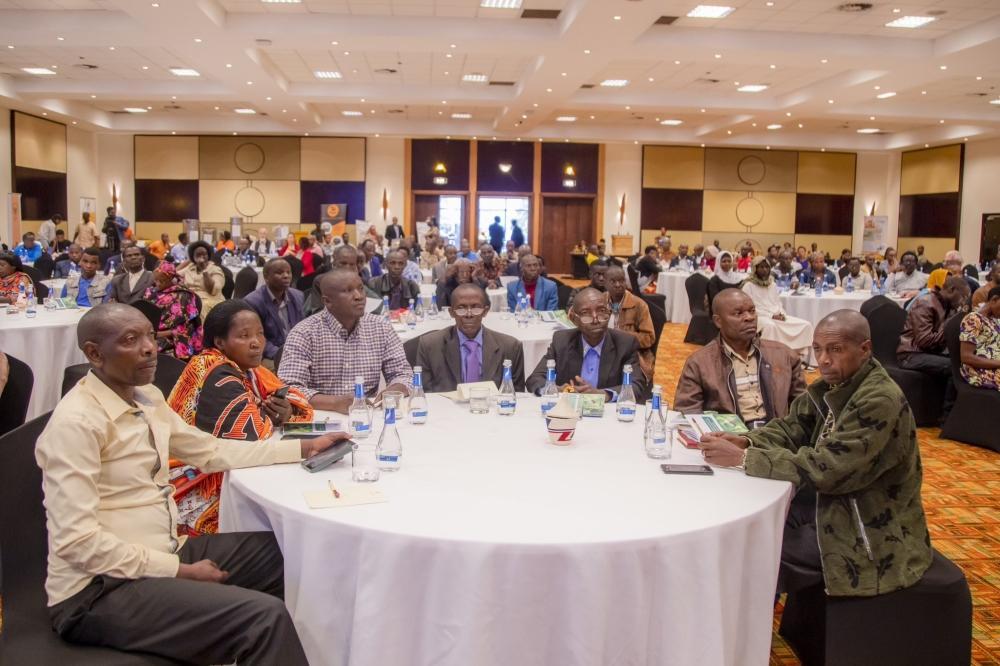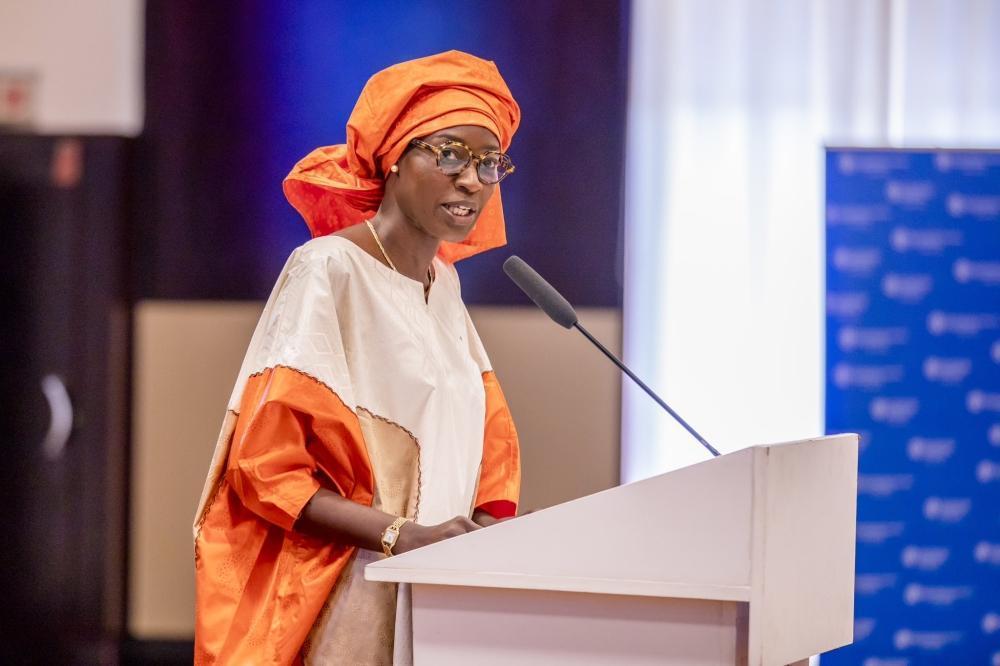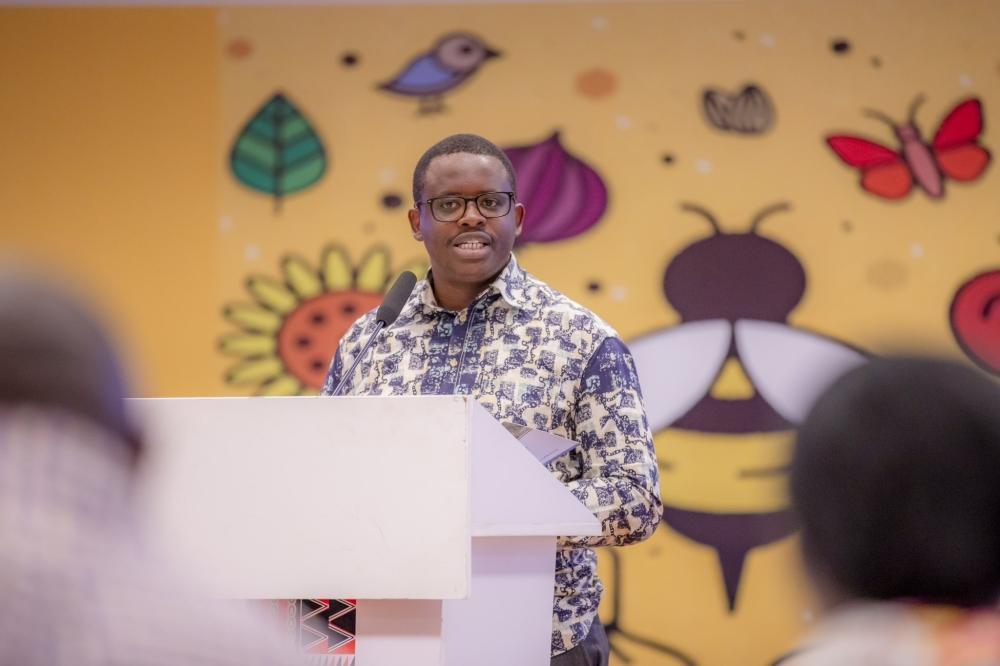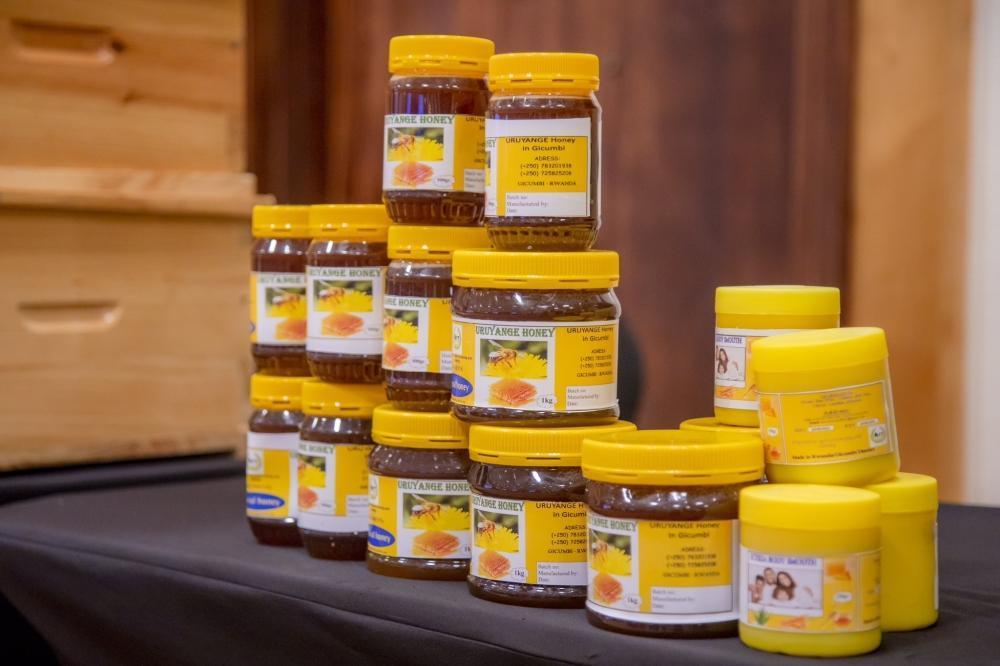Africa-Press – Rwanda. More than 300 beekeepers and honey producers from all over the country gathered on Friday, June 2, to discuss enhancing productivity and ensuring quality for increased income, food security, and nutrition.
This event marked the celebration of World Bee Day under the theme ‘Bee engaged in pollinator-agricultural production’.
The primary objective was to unite efforts in advancing the development of the honey sector in Rwanda and raising public awareness regarding the significance of apiculture in the country’s agriculture and economic growth.
During the gathering, experts highlighted the challenges faced by bee populations and the subsequent impact on food quality due to intensive farming practices, land-use changes, mono-cropping, pesticides, and the effects of climate change, such as higher temperatures. These factors pose considerable problems for bee populations and necessitate attention for the betterment of the food ecosystem.
Olivier Kamana, the Permanent Secretary of the Ministry of Agriculture and Animal Resources, revealed that honey production in Rwanda has increased from 5,200 tonnes in 2018 to 6,135 tonnes in 2021.
The ambitious target is to reach 8,611 tonnes by 2024. Kamana emphasised the importance of adopting modern beekeeping methods to enhance both honey production and its quality, aligning with international standards for export.
The use of artificial pesticides and fertilisers emerged as a concerning issue during the meeting. Beekeepers conducting business near farms that employ such chemicals face the challenge of bees dying during the pollination process in contaminated plantations.
To address this issue, Kamana suggested collaboration between beekeepers and farmers to ensure the spraying of pesticides occurs before flowering. Additionally, the Ministry of Agriculture and Animal Resources plans to engage farmers at the sector level to promote practices that do not harm beekeeping.
Coumba D. Sow, the Representative of the Food and Agriculture Organisation (FAO) in Rwanda, shared that FAO is actively implementing various agricultural programmes, including the One Country One Priority Product (OCOP) initiative, where honey has been identified as a priority product for Rwanda. Through this initiative, FAO supports the honey value chain by providing beekeeping equipment to key cooperatives, offering training on national and international standards, and facilitating participation in international forums to promote Rwandan honey on the global market.
Rwanda’s honey has gained recognition for its quality compliance, leading to accreditation in June 2014 as a third-party country eligible to export honey to the European Union market.
“This opportunity has expanded the market size for Rwandan honey products. However, the current supply of honey still falls short of meeting the demand. Therefore, stakeholders are encouraged to intensify their efforts to increase honey production significantly in terms of both quantity and quality,” she said.
To attract more youth to the apiculture value chain, Patrick Uwingabire, a beekeeper from Huye District, shared his experience. He mentioned that KOPABUHU, their cooperative comprising 16 members, all of whom are youth, has successfully acquired 524 modern beehives, resulting in an annual honey production of around 8.5 tonnes.
To address the declining bee populations, Rwandans were urged to take several actions, including planting a diverse set of native plants that bloom at different times of the year, purchasing raw honey from local farmers, supporting sustainable agricultural practices, avoiding the use of pesticides, fungicides, or herbicides in gardens, protecting wild bee colonies whenever possible, and contributing to the preservation of forest ecosystems.
The meeting concluded with a renewed commitment to further develop Rwanda’s honey sector, ensuring sustainable practices, and nurturing a thriving beekeeping industry that benefits both beekeepers and the nation as a whole.
Coumba D. Sow, Representative of the Food and Agriculture Organisation (FAO) in Rwanda delivers remarks. She enlightens the audience about FAO’s dedicated efforts in implementing various agricultural programs.
Olivier Kamana, Permanent Secretary of the Ministry of Agriculture and Animal Resources, emphasized the critical role of adopting modern beekeeping methods.
Some of honey produced in Rwanda that were showcased at the event
For More News And Analysis About Rwanda Follow Africa-Press









